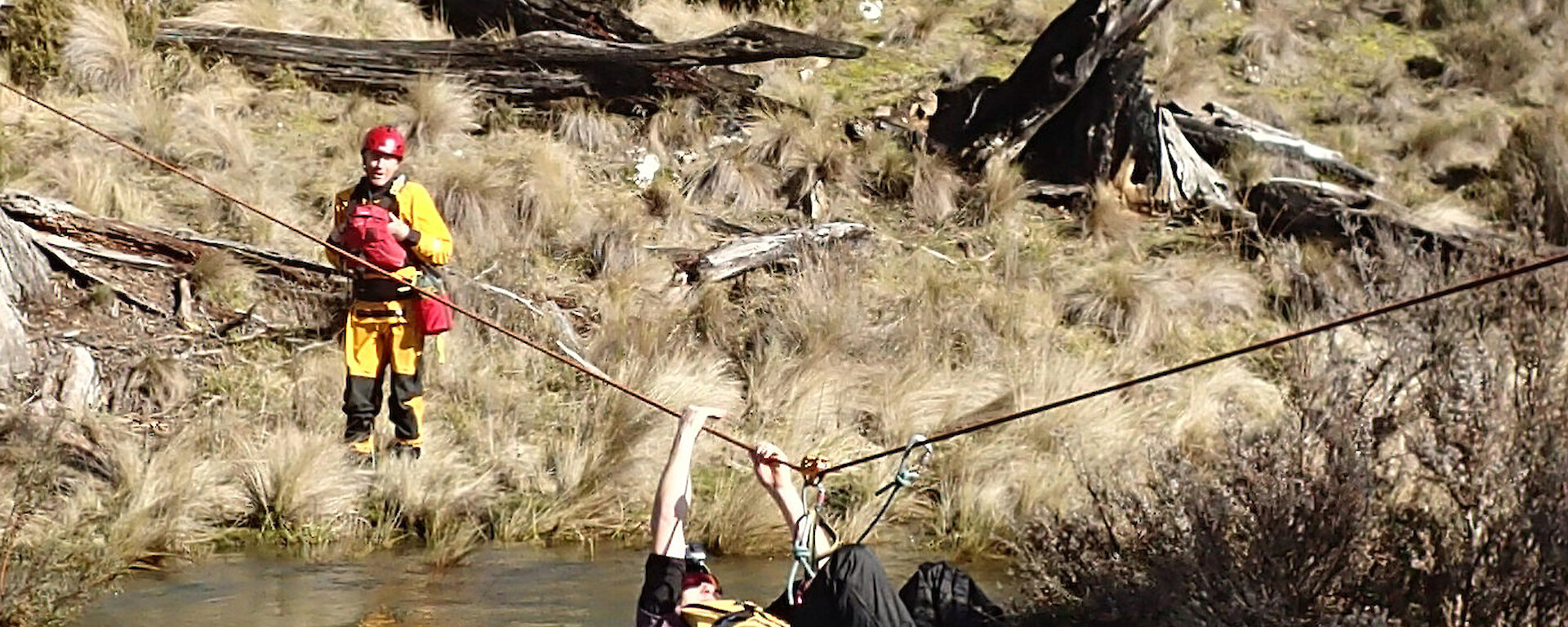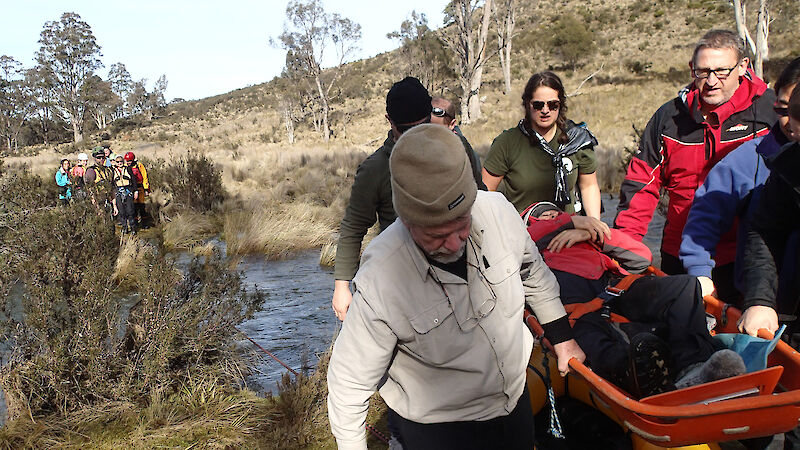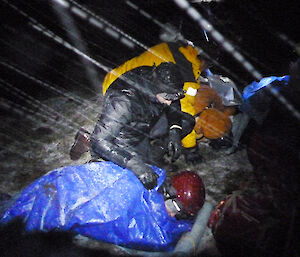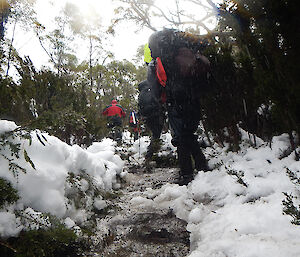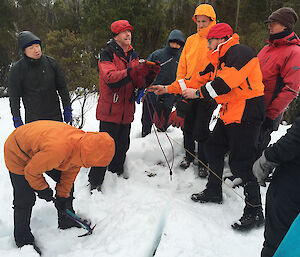Fresh snow and freezing temperatures in Tasmania’s Central Highlands have given Antarctic-bound doctors a glimpse into their future as they prepare for their posting on the frozen continent.
Five Australian Antarctic Division doctors have undertaken an eight-day Winter Expedition Medicine course at Bronte Park.
The course, delivered by the University of Tasmania’s Faculty of Health in partnership with the Australian Antarctic Division, provides participants with practical experience in expedition skills and providing medical care in extreme environments.
Australian Antarctic Division’s Chief Medical Officer, Dr Jeff Ayton, said the Division is recognised as a leader in the area of cold climate, remote and extreme medicine. The University of Tasmania collaboration is allowing others to be trained alongside Australian Antarctic doctors.
“We have spent many decades developing and refining how we deliver medical care in extreme and isolated environments to ensure we can respond to scenarios as required and and deliver high quality health care in Antarctica and the Southern Ocean,” Dr Ayton said.
“Each of Australia’s three Antarctic stations, and sub-Antarctic station on Macquarie Island, has a sole medical practitioner who is responsible for the care and well-being of all expeditioners. While they are supported via the Division’s 24/7 telemedicine systems which connect them to experts based in Hobart, training doctors in a range of medical and expedition skills is essential.”
The course covers cold injury management, wound repair, search and rescue techniques, rope skills, the use of splints and stretchers, steep terrain rescue and evacuation, remote area communication and navigation and field skills.
Dr Elise Roberts, who will spend a summer and winter at Casey research station — her first Antarctic posting — said the course exceeded her expectations.
“The scenarios were well planned and also very realistic,” Dr Roberts said.
“Delivering medical care in the wilderness is very different to a hospital. During one scenario there was snow on the ground, the wind was howling, it was dark outside and we were wet.
“The course took us out of our comfort zone and delivered all the challenges of practicing medicine in the field, teaching us how to prioritise treatment — which is an important consideration in a remote environment with limited resources.
“There was also an opportunity to learn from the experiences of those doctors and wilderness instructors who have spent time on the continent, which is incredibly valuable.”
The course also covers pre-expedition planning and appropriate contents for an expedition medical kit.
The Antarctic-bound doctors were joined by eighteen medical professionals and wilderness instructors on the course, which is open to the public and is also offered as part of the University of Tasmania’s Master of Public Health (Remote and Polar Health) course.

